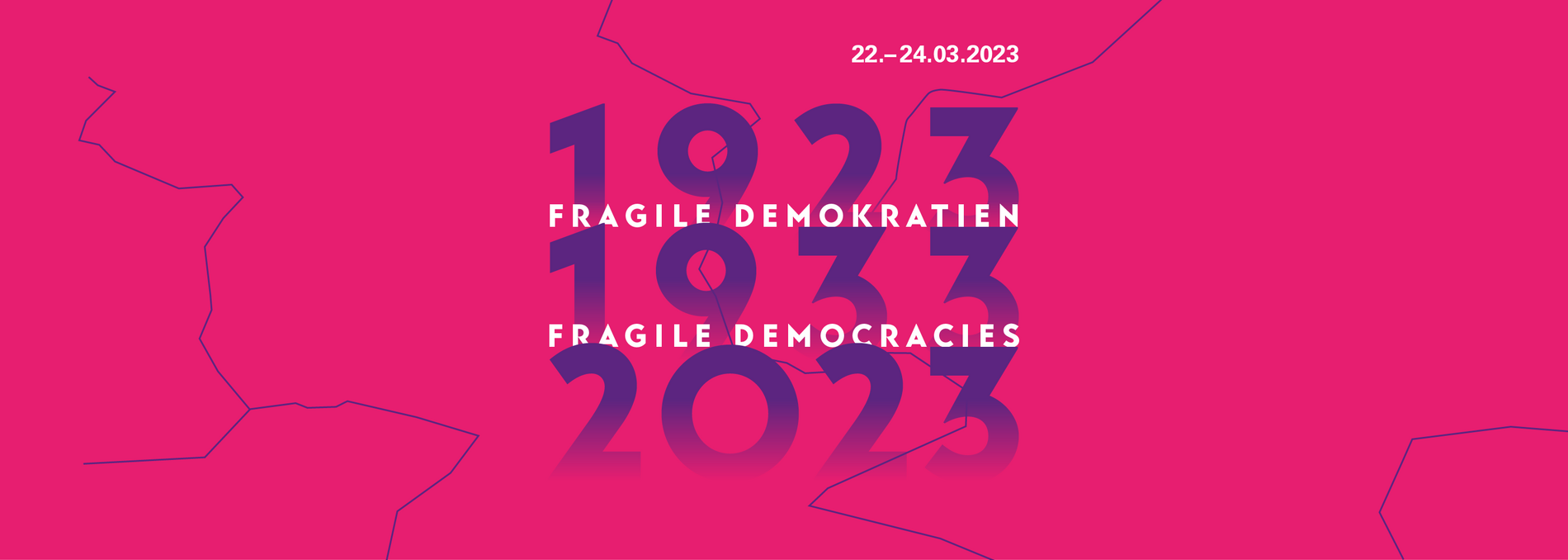About the conference
Ninety years ago Adolf Hitler came to power in Germany. In January 1933, Paul von Hindenburg appointed him Reich chancellor. A few weeks later, on March 24,1933, he had the so-called Enabling Act passed by the Reichstag. This Act finally sealed the end of Germany’s first democracy. The Nazis had already tried to seize power in the German Reich ten years earlier with a violent attempted putsch in Munich on November 9, 1923. The putsch failed, however.
The “Beer Hall Putsch” of 1923 and the takeover of power by the National Socialists in 1933 are examples of how democracies can come to an end either suddenly or gradually. They also illustrate the potential spectrum of antidemocratic developments, from an open attempt to overthrow the prevailing order from outside to the gradual subversion of the system from within.
Over the past 100 years political groups and figures have emerged time and again all over the world who have cast doubt on democratic systems or sought to erode or attack them—often successfully.
Together with international representatives from the fields of history, politics, economics, and the social sciences we will analyse and discuss the fragility of democracies in various regions of the world in the past and present. We will look at specific historical constellations as well as at recurring patterns and factors and consider how democratic societies can safeguard themselves against authoritarian and fascist tendencies.
The Munich Documentation Center’s Spring School, which is designed for multipliers and teachers, will take place parallel to the conference. Its participants will attend both the conference program and the accompanying workshops. The Spring School will focus on the question of what role remembrance culture initiatives play within democratic societies.


